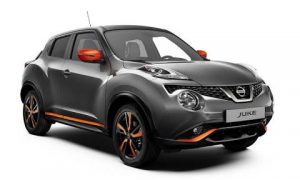The future of electric cars is incredibly exciting, and there are several key developments and trends that are shaping their evolution:
Improved Battery Technology:
Advancements in battery technology are critical for the future of electric cars. Manufacturers are investing heavily in research and development to enhance energy density, increase range, reduce charging times, and improve overall battery performance. Solid-state batteries, which offer higher energy density and improved safety, are seen as a promising next step.
Increased Range:
Range anxiety has been a concern for electric vehicle (EV) adoption. However, newer models are offering longer driving ranges, making electric cars more practical for everyday use. Continuous improvements in battery technology and the development of charging infrastructure are contributing to extended driving ranges, reducing the need for frequent charging.
Fast-Charging Infrastructure:
The expansion of fast-charging networks is crucial for the widespread adoption of electric cars. Governments, automakers, and charging companies are investing in the deployment of high-power charging stations that can significantly reduce charging times. Ultra-fast charging technologies, such as 350 kW chargers, are emerging, allowing for rapid recharging and increased convenience.
Diverse Vehicle Segments:
Initially, electric cars were primarily available in compact and mid-sized models. However, automakers are now introducing electric options in a wide range of vehicle segments, including SUVs, crossovers, sedans, and even high-performance sports cars. This expansion provides consumers with more choices and caters to different preferences and needs.
Autonomous Driving Integration:
Electric vehicles and autonomous driving technologies are interconnected. Many electric cars are equipped with advanced driver-assistance systems (ADAS) and self-driving features. As autonomous technology continues to advance, electric cars are likely to incorporate even more sophisticated self-driving capabilities, improving safety, efficiency, and convenience.
Environmental Sustainability:
The global shift toward reducing greenhouse gas emissions and combating climate change is driving the transition to electric vehicles. Governments are implementing stricter emission standards, offering incentives for electric car purchases, and investing in renewable energy sources. The environmental benefits of electric cars, including lower carbon emissions and improved air quality, make them a crucial component of sustainable transportation systems.
Integration with Renewable Energy:
Electric cars can play a vital role in the integration of renewable energy sources. Vehicle to vehicle grid technology helps in bidirectional energy flow between EVs and the power grid. This combination allows electric vehicles to store massive renewable energy and supply it back to the grid during high demand periods, contributing to a more efficient and resilient energy ecosystem.
Electrification of Commercial Fleets:
Electric vehicle adoption is not limited to passenger cars. Commercial fleets, including delivery vehicles, buses, and taxis, are also transitioning to electric power. The electrification of these fleets provides significant environmental benefits, reduces operating costs, and contributes to the overall decarbonization of transportation.
Conclution:
It’s important to note that the future of electric cars is influenced by various factors, including technological advancements, government policies, charging infrastructure development, and consumer preferences. However, with continued innovation and support, electric cars are expected to become increasingly mainstream, providing a cleaner and more sustainable future of transportation.
















